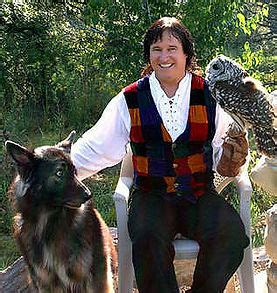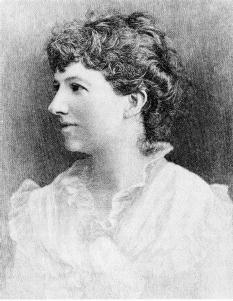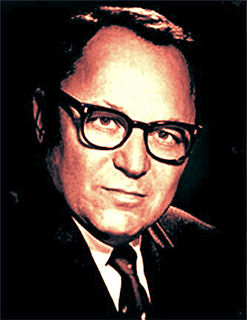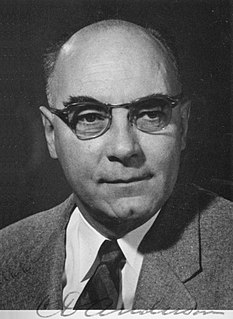A Quote by Christopher Paolini
I cannot prove that gods do not exist. Nor can I prove that the world and everything in it was not created by an entity or entities in the distant past. But I can tell you that in the millennia we elves have studied nature, we have never witnessed an instance where the rules that govern the world have been broken. That is, we have never seen a miracle. Many events have defied our ability to explain, but we are convinced that we failed because we are still woefully ignorant about the universe and not because a deity altered the workings of nature.
Related Quotes
Our global institutional arrangements - the basic ground rules that govern our world economy - are human-made. They don't exist naturally, nor are they God-given. We make these rules, those of the WTO [World Trade Organization] Treaty for instance, which fill tens of thousands of pages. These words have been strung together by human beings and are also interpreted and enforced by human beings.
Enchanted worlds still exist because the child within us never dies. The doorways may be more obscure, but we can still seek them out. There are still noble adventures to undertake. There are still trees that speak and caverns that lead to nether realms. There will always be faeries and elves within nature because they will always be dancing in our hearts.
The human understanding is a revelation from its maker, which can never be disputed or doubted. There can be no scepticism, Pyrrhonism, or incredulity or infidelity here. No prophecies, no miracles are necessary to prove this celestical communication. This revelation has made it certain that two and one make three, and that one is not three nor can three be one. We can never be so certain of any prophecy, or the fulfilment of any prophecy, or of any miracle, or the design of any miracle, as we are from the revelation of nature, that is, nature's God, that two and two are equal to four.
Science has been effective at furthering our understanding of nature because the scientific ethos is based on three key principles: (1) follow the evidence wherever it leads; (2) if one has a theory, one needs to be willing to try to prove it wrong as much as one tries to prove that it is right; (3) the ultimate arbiter of truth is experiment, not the comfort one derives from one's a priori beliefs, nor the beauty or elegance one ascribes to one's theoretical models.
Every heart has a miracle to pray for. Every life holds that which only a miracle can cure. To prove that there have never been, that there can never be, miracles does not alter the matter. So long as there is something hoped for, - that does not come in the legitimate channel of possible events, - just so long will the miracle be prayed for.
The exercise of magical power is the exercise of natural powers, but superior to the ordinary functions of Nature. A miracle is not a violation of the laws of Nature, except for ignorant people. Magic is but a science, a profound knowledge of the Occult forces in Nature, and of the laws governing the visible or the invisible world. Spiritualism in the hands of an adept becomes Magic, for he is learned in the art of blending together the laws of the Universe, without breaking any of them and thereby violating Nature.
As a philosopher, if I were speaking to a purely philosophic audience I should say that I ought to describe myself as an Agnostic, because I do not think that there is a conclusive argument by which one can prove that there is not a God. On the other hand, if I am to convey the right impression to the ordinary man in the street I think that I ought to say that I am an Atheist, because, when I say that I cannot prove that there is not a God, I ought to add equally that I cannot prove that there are not the Homeric gods.
Absurd, irreducible; nothing — not even a profound and secret delirium of nature — could explain it. Obviously I did not know everything, I had not seen the seeds sprout, or the tree grow. But faced with this great wrinkled paw, neither ignorance nor knowledge was important: the world of explanations and reasons is not the world of existence. A circle is not absurd, it is clearly explained by the rotation of a straight segment around one of its extremities. But neither does a circle exist. This root, on the other hand, existed in such a way that I could not explain it.
Nature consists of facts and of regularities, and is in itself neither moral nor immoral. It is we who impose our standards upon nature, and who in this way introduce morals into the natural world, in spite the fact that we are part of this world. We are products of nature, but nature has made us together with our power of altering the world, of foreseeing and of planning for the future, and of making far-reaching decisions for which we are morally responsible. Yet, responsibility, decisions, enter the world of nature only with us
The world was created because God willed it, but why did He will it? Judaism has maintained, in all of its versions, that this world is the arena that God created for man, half beast and half angel; to prove that he could be a moral being...man was given dominion over nature, but he was commanded to behave towards the rest of creation with justice and compassion. Man lives, always, in tension between his power and the limits set by his conscience.
This world of ours is a new world, in which the unit of knowledge, the nature of human communities, the order of society, the order of ideas, the very notions of society and culture have changed, and will not return to what they have been in the past. What is new is new, not because it has never been there before, but because it has changed in quality.
The atom can't be seen, yet its existence can be proved. And it is simple to prove that it can't ever be seen. It has to be studied by indirect evidence - and the technical difficulty has been compared to asking a man who has never seen a piano to describe a piano from the sound it would make falling downstairs in the dark.



































